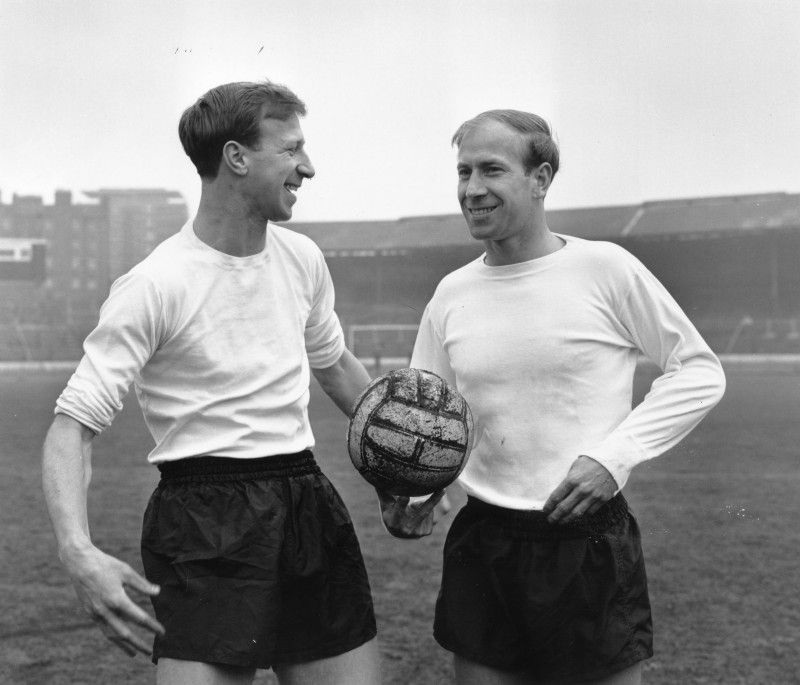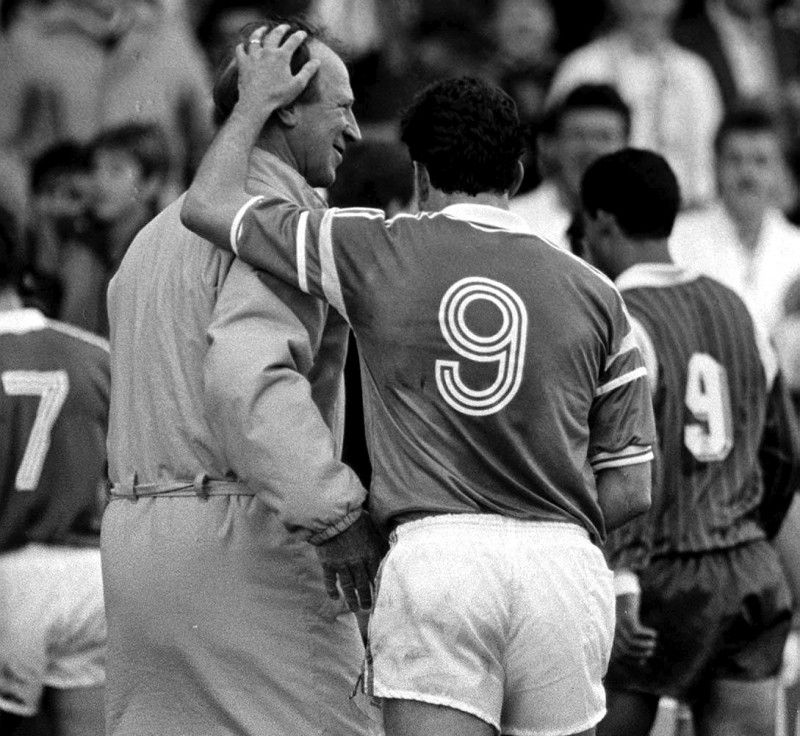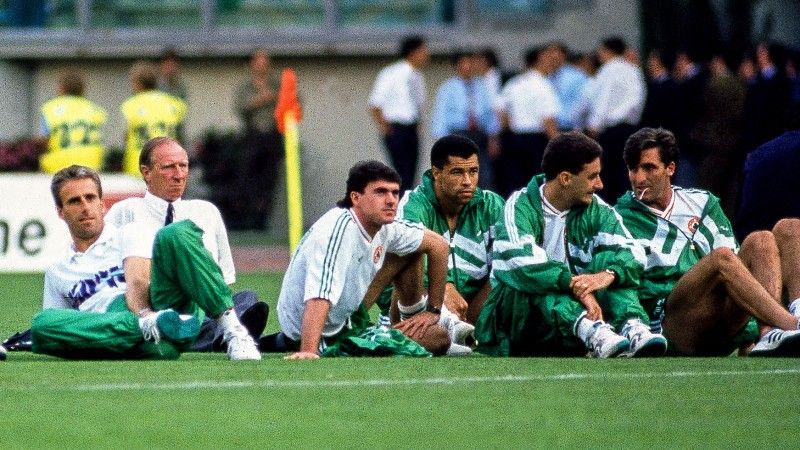
Football

Share
12th October 2022
05:57pm BST

 Brothers and members of the England football team, Jack Charlton (left) and Bobby Charlton train at Chelsea Football Club's Stamford Bridge stadium, in 1965. (Photo by Kent Gavin/Keystone/Getty Images)[/caption]
Brothers and members of the England football team, Jack Charlton (left) and Bobby Charlton train at Chelsea Football Club's Stamford Bridge stadium, in 1965. (Photo by Kent Gavin/Keystone/Getty Images)[/caption]
"There has been a long-running theme of exile from the North East. Jack and Bobby were both good footballers, growing up, but they had to leave their home to be successful. "Still, Jack initially turned down a trial with Leeds United. In large part, he was terrified of leaving and going back as a failure. He didn't think he was good enough. "When the club first reached out to the family about getting him over for that trial, his mother, Cissie, famously said, 'Oh no, you've got the wrong one. You mean our Bobby?' "Cissie's four brothers had played football professionally. Bobby was so talented, growing up. He was the one expected to make it. He had what it took. Jack, for a long time, had no interest in football."After turning down that initial trial to go work with his father in the coal mines, a 15-year-old Jack Charlton had a change of heart, in 1950, and took Leeds up on their offer. He impressed at the trial, made his first senior appearance within a year and would go on to play 629 times, over 21 seasons, for the club, winning six major trophies with them. He retired in 1973, at the age of 38, and did not have to wait long for an offer into management. Middlesbrough offered him a job interview, but Charlton sent them a list of roles and responsibilities he wanted if he took the job. He also wanted assurances the board would not interview, and that he would get ample time off to go shooting and fishing. Middlesbrough hired him. [caption id="attachment_274209" align="aligncenter" width="800"]
 John Aldridge is congratulated by Jack Charlton, after scoring his first Ireland goal, against Tunisia, in 1988. (Credit: Ray McManus SPORTSFILE)[/caption]
John Aldridge is congratulated by Jack Charlton, after scoring his first Ireland goal, against Tunisia, in 1988. (Credit: Ray McManus SPORTSFILE)[/caption]
"The is a story about Jack, growing up in Ashington. He was chatting to a few of the newspaper delivery boys about their work, and their routes. It was taking them far too long, they complained. So Jack sat down with them and rationalised their routes - found better and quicker ways for them to get their work done. He then took a small cut of what they were paid. Even then, it was an early sign of his organisational skills and leadership."Jack Charlton thrived as manager of Ireland. Granted, he had players like Packie Bonner, Ronnie Whelan, Frank Stapleton, Liam Brady and Paul McGrath to work with, but Ireland had never previously qualified for a major tournament. There were no 16- or 32-country tournaments, either. Back then, it was eight teams qualifying for the European Championship and 24 for a World Cup. One area that Charlton sought to make fast gains, for Ireland, was taking advantage of the 'Granny Rule' to bring in players from other countries that, through grandparents, were allowed to play for other countries they qualified for.
"It was that sense of the Irish diaspora that Jack tapped into," says Wilson. "That sense of a country, or place, that you had a connection to you - no matter how big or small - and tapping into that. "Let's not get into the emotions of it all, Jack thought. What can they give us, and what can we give them."Through that lense, Charlton gave international football to the likes of Ray Houghton, John Aldridge, Chris Morris and - even though he did not, in fact, have an Irish grandparent - Tony Cascarino. In return, they helped Charlton qualify for three major tournaments in the space of six years. [caption id="attachment_274210" align="aligncenter" width="800"]
 Republic of Ireland manager Jack Charlton and players, from left, Mick McCarthy, Alan McLoughlin, Paul McGrath, John Aldridge and Bernie Slaven prior to the FIFA World Cup 1990 Round of 16 match against Romania. (Photo by Ray McManus/Sportsfile)[/caption]
Republic of Ireland manager Jack Charlton and players, from left, Mick McCarthy, Alan McLoughlin, Paul McGrath, John Aldridge and Bernie Slaven prior to the FIFA World Cup 1990 Round of 16 match against Romania. (Photo by Ray McManus/Sportsfile)[/caption]
"He played up to that relaxed character persona," he adds. "The guy that loved fishing and hunting, and sometimes managing a football team. 'People will underestimate me,' he thought, 'and I can use that to our advantage'. "He was doing something revolutionary, in terms of tactics, between 1986 and 1990. It was all about speed, aggression and trying to press the ball, high up the pitch. That required buy-in from his players and a lot of organisation."Bobby Charlton, two years and five months younger, was almost more impressed by his older brother, the manager, than the player that won a World Cup with him, in 1996, and was voted Footballer of the Year, 12 months later. As for Jack, he made his feelings known about Bobby in a memorable moment on a BBC production for Sports Personality of the Year.
"Bobby Charlton is the greatest player I've ever seen," he said, "and my brother."https://twitter.com/sid_lambert/status/1315265061125083136 This year’s Red Line Festival, on October 13-16, has a most exciting new series of sports and wellbeing events across several venues, including Tallaght Stadium, The Civic Theatre, Castletymon Library and the County Library in Tallaght. All of the events can be booked on www.redlinefestival.ie Related links:
Explore more on these topics:

Football
football